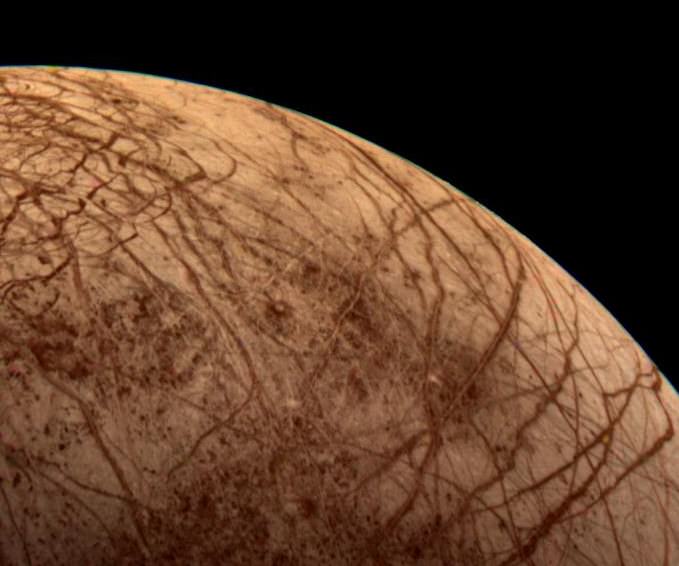[/caption]
Next week, the US National Academy of Sciences will release their decadal review of priorities for planetary science in 2013-2022, and it will be interesting to see how highly prioritized a mission to Jupiter's enticing moon Europa will be. But according to Space News, word from the NASA Advisory Council's planetary science subcommittee is that because of probable flat or declining budgets for building and operating planetary probes over the next five years, there will likely be no funding to begin development of a flagship-class mission such as a long-anticipated detailed survey of Europa.
"The out-years budget means no major new starts of a flagship planetary [mission]," Ronald Greeley, a regent's professor at Arizona State University in Tempe and chairman of the NASA Advisory Council's planetary science subcommittee, said during a March 1 conference call with panel members. "That's a major, major issue for our community."
The only flagship-class planetary mission in the works is the $2.5 billion Mars Science Laboratory Curiosity. The Juno mission to Jupiter, scheduled to launch in August 2011, is a medium-class "New Frontiers" mission set to study Jupiter only and not any of its moons.
The 2012 budget request for NASA, unveiled February 14, 2011 by President Obama, would boost spending on planetary science activities from the current level of $1.36 billion to $1.54 billion next year. But funding would steadily decline over the following four years, to $1.25 billion in 2016.
Space News reports that "NASA's projected top-line budget is flat over the next five years at $18.72 billion, which when inflation is factored in translates into a decline in spending power. But there are budgetary scenarios under which NASA's budget would decline over the next five years, even as the agency tries to replace the space shuttle and contends with runaway cost growth on the $5 billion-plus James Webb Space Telescope, the designated successor to the Hubble Space Telescope."
Many have long hoped for mission to Europa, but budgetary issues have been a problem, even the past; the JIMO (Jupiter Icy Moon Orbiter) mission was canceled in 2005 because of lack of funding.
ESA and NASA have been studying a collaborative mission called Europa Jupiter System Mission/Laplace that would send two spacecraft to survey Jupiter and its moons. It is one of three candidates for a large-scale science mission opportunity that would launch around 2022. ESA has budgeted about $1 billion for the opportunity but is awaiting decisions from NASA and the Japanese space agency, which is collaborating on another candidate mission, before making a final decision on which one to pursue.
"How we will implement [the decadal priorities] within our existing budget needs to be considered," NASA Planetary Science Division Director Jim Green said during the March 1 conference call, adding there is "no additional money beyond the president's submitted budget."
Source: Space News
 Universe Today
Universe Today
